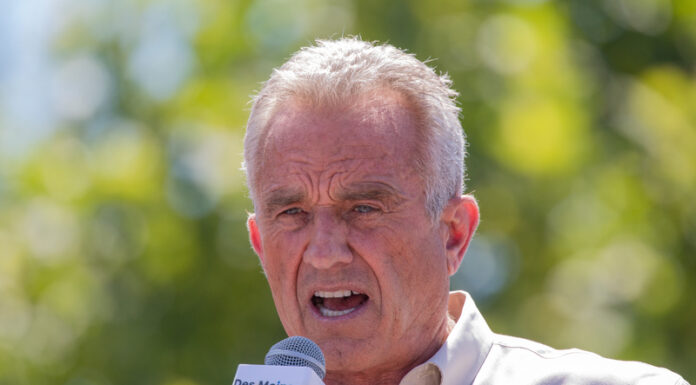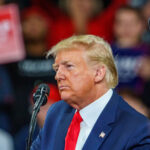Robert F. Kennedy Jr. has been at the helm of the Department of Health and Human Services (HHS) for only six weeks. His decision to appoint a contentious researcher to lead a government inquiry into vaccines and autism has drawn significant criticism from health experts.
Reports indicate that David Geier has been appointed as a “senior data analyst” at HHS to explore possible connections between childhood vaccines and autism, a link that numerous scientific studies have consistently refuted. Geier is included in the HHS staff directory and reportedly works in the office of the HHS secretary, particularly under the assistant secretary for financial resources.
This appointment has alarmed vaccine specialists and public health officials, who cite Geier’s controversial history. Geier lacks a medical degree and was sanctioned by the Maryland State Board of Physicians in 2011 for practicing medicine without a license. He and his father, Mark Geier, have published papers suggesting vaccines increase autism risk, but many of their studies have been retracted or discredited.
“It’s like hiring Andrew Wakefield,” said Dorit Reiss, a law professor at UC Law San Francisco who researches the anti-vaccine movement, referring to the British doctor known for a now-retracted study falsely linking the measles, mumps, and rubella vaccine to autism.
The Geiers have long asserted that thimerosal, a mercury-based preservative in vaccines, contributed to rising autism diagnoses. However, autism rates have not decreased in the over 20 years since thimerosal was largely removed from vaccines in the United States.
Jessica Steier, a public health researcher and leader of the nonprofit Science Literacy Lab, remarked that the Geiers’ research is “riddled with basic flaws” and shows “patterns of an anti-vaccine agenda.”
The HHS study arises at a particularly sensitive time, as a measles outbreak affects Texas, Oklahoma, and New Mexico. As of last week, 377 cases were confirmed in these states, with the majority in unvaccinated children in Texas, marking the most significant U.S. measles outbreak since 2019. Two deaths have occurred, including that of a six-year-old girl.
Despite this, Kennedy has minimized the significance of the measles vaccine. During his confirmation hearings earlier this year, Senator Bill Cassidy (R-Louisiana), who is a physician, urged Kennedy to renounce his previous claims about vaccines and autism. Kennedy stated he would do so if presented with data disproving the link, notwithstanding the extensive research already disproving it.
When Cassidy presented Kennedy with a 2014 meta-analysis titled “Vaccines are not associated with autism: An evidence-based meta-analysis of case-control and cohort studies,” Kennedy referenced a disputed study and stated, “There are other studies out there. I just want to follow the science.”
The Johns Hopkins Bloomberg School of Public Health has highlighted compelling evidence from 16 well-conducted, large population-based studies showing that vaccines do not cause autism. The thimerosal theory was extensively examined, and researchers found no connection between the preservative and autism rates.
Anonymous public health officials have indicated that HHS has instructed the Centers for Disease Control and Prevention (CDC) to provide vaccine safety data to the National Institutes of Health (NIH) for analysis. This data reportedly includes information from four studies on vaccines and autism published in the 2000s.
When questioned about his involvement in the study, Geier told reporters: “I don’t have any comment to say. Talk to the secretary. He’s the person that’s in charge.”
Geier’s appointment is among several contentious decisions by Kennedy during his brief tenure. He recently announced plans to consolidate HHS agencies and reduce the workforce by 20,000 jobs. While some elements of his plan, such as refocusing the CDC on infectious disease preparedness, are not seen as radical, the appointment of vaccine skeptics to prominent roles has raised substantial concerns.
Peter Marks, the FDA’s leading vaccine official, has departed the agency following Kennedy’s appointment. Marks had previously criticized Kennedy’s “misinformation and lies” regarding vaccines.
Public health experts worry that assigning a researcher with a history of promoting discredited claims could lead to a flawed study with significant repercussions. Concerns are rising that it could erode trust in vaccinations and further undermine public confidence in the CDC at a time when vaccine hesitancy is already a noteworthy issue.
“It seems the goal of this administration is to prove that vaccines cause autism, even though they don’t,” said Alison Singer, president of the Autism Science Foundation, a nonprofit that funds autism research.
Numerous scientific organizations and researchers have voiced serious concerns regarding the methodology and potential outcomes of a study led by someone with Geier’s background. Some public health officials have described the selection as a “tactical error” and a “worst-case scenario for public health.”
Kennedy, for his part, has long been skeptical of the scientific consensus on vaccines, despite overwhelming evidence. During his Senate confirmation hearing, he did not unequivocally state that vaccines do not cause autism and instead requested more data, despite being presented with multiple studies showing no link.
The study is happening amid a broader reorganization at HHS, where Kennedy has proposed consolidating various agencies and cutting thousands of jobs. Senator Cassidy, who ultimately voted to confirm Kennedy after receiving commitments about federal support for vaccines, recently met with the HHS Secretary to discuss these job cuts but said the vaccine-autism study did not come up during their meeting. As Kennedy continues to implement his vision for HHS, public health experts closely monitor how his administration’s positions on vaccines will affect public health policy and potentially impact vaccination rates nationwide.








